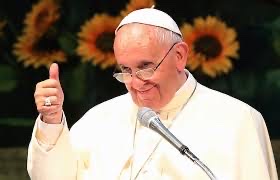Vox Day vs The Kurgan: A Battle of Bad Premises
When two strong personalities discuss theology, it's easy for the real issues to get buried under passion or pride.
Recently, Vox Day and The Kurgan exchanged views on some important theological questions — namely the nature of the Church, the love of God, and the perpetual virginity of Mary.
Both men are intelligent.
Both have thought deeply about these matters in their own way.
But when you dig into their answers, you find that both approaches rest on fragile foundations — though for different reasons.
Here’s a calm, step-by-step look at where each man’s position leads — and where they both fall short of the Catholic faith as it was taught by the Apostles and preserved across the centuries.
📖 The Three Core Questions
The Kurgan posed three key questions to Vox:
-
If God established a Church, must it necessarily be infallible and last until the end times?
-
If not, how is that compatible with God being a loving God?
-
Did Mary remain a virgin before and after the birth of Jesus?
Vox answered from his Protestant-leaning perspective, while Kurgan critiqued his answers from a Catholic (and specifically sedevacantist) point of view.
Let’s take them one by one.
🧠 Question 1: The Church’s Infallibility and Permanence
Vox’s answer:
Disagrees. He believes the Church could be fallible and temporary because Christ’s followers were (and are) flawed.
The Kurgan’s critique:
Correctly notes that Catholic teaching has never based infallibility on the goodness of human beings. Rather, it is God Himself who protects the Church’s official teachings on faith and morals from error.
Analysis:
The Kurgan is right here.
Scripture directly supports Christ’s promise that "the gates of hell shall not prevail" against the Church (Matthew 16:18).
Infallibility does not mean popes and bishops are personally sinless — it means the Church’s official teaching is supernaturally protected from error where it counts.
Vox’s position reveals a common Protestant mistake: assuming that because men are fallible, the Church as a divine institution must be fallible too.
This misses the very heart of Catholic faith — trusting that Christ acts through His Church despite human weakness.
❤️ Question 2: God’s Love Without a Church?
Vox’s answer:
He says God’s love is shown in sending Jesus to rescue us, not necessarily in founding a visible Church or fixed doctrine.
The Kurgan’s critique:
He questions how we could know what God’s rules or expectations are if there is no visible, infallible Church to teach them.
Analysis:
Again, Kurgan raises an important point.
If God simply left us with no reliable way to know what He asks of us, then salvation would become a guessing game.
It would seem more like a cruel riddle than an act of mercy.
But through Christ, the Apostles, and the Church, God provided clear means: Baptism, Eucharist, confession, Scripture, and a visible communion of believers united by the same truth.
Vox’s emphasis on private belief over a visible Church sadly mirrors a broader Protestant tendency toward individualism — a view at odds with the corporate, sacramental nature of salvation revealed in Scripture.
🌹 Question 3: The Virginity of Mary
Vox’s answer:
He doubts Mary remained a virgin after Jesus' birth, reasoning that later children would disprove it.
The Kurgan’s critique:
He patiently explains that:
-
"Brothers" in ancient languages could mean cousins or relatives.
-
The Church Fathers unanimously taught Mary’s perpetual virginity for 1,500 years.
-
Joseph and Mary’s marriage was real but not consummated, a concept common in ancient Jewish understanding when something was "consecrated to God."
Analysis:
The Kurgan is exactly right.
Vox’s view reflects a modern misunderstanding, not ancient Christian teaching.
From the earliest times, Christians affirmed that Mary was "ever-virgin," not as an oddity, but because her body was the temple where God Himself had dwelt.
It’s worth noting that Martin Luther, John Calvin, and other Protestant Reformers also believed in Mary’s perpetual virginity — showing how deep and universal this belief once was.
🧩 Deeper Problems on Both Sides
While Kurgan’s defense of Catholic truth is often sound, it’s important to note that his own sedevacantist framework carries serious risks:
-
Like Vox, he ultimately trusts his own judgment to decide who the true Church is today.
-
While he accuses Protestants of private judgment, he too judges modern bishops, popes, and sacraments based on private criteria.
Thus, both men fall into different forms of relying on private judgment:
-
Vox in discarding the visible Church almost entirely.
-
Kurgan in reconstructing it selectively after 1958.
True Catholicism, by contrast, trusts that the Church — despite her human flaws — remains visible, continuous, and divinely protected through history, without secret gaps or hidden remnant theories.
🎯 Final Reflection
When theology becomes a private echo chamber, error multiplies.
Vox’s Protestant individualism leaves him with no visible, authoritative guide — just personal belief in Scripture (which itself comes from the Church he doubts).
The Kurgan’s radical traditionalism risks building a private church of his own, while rejecting the living Church still here.
Catholicism remains the narrow way between these extremes:
-
Trusting Christ’s promises.
-
Trusting the Church He founded.
-
Trusting that even through storms, the Barque of Peter remains afloat — visible, wounded, but guided by the Holy Spirit.
In debates like these, it’s not about winning arguments.
It’s about humbly finding the way home — and trusting the Shepherd who never abandons His flock.

Comments
Post a Comment